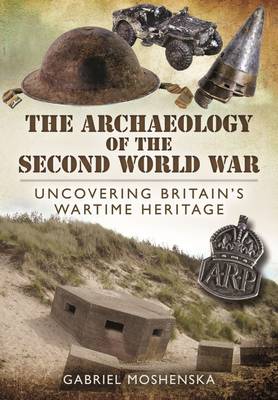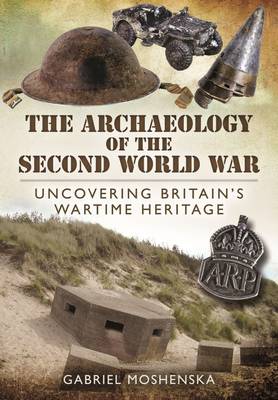
- Retrait gratuit dans votre magasin Club
- 7.000.000 titres dans notre catalogue
- Payer en toute sécurité
- Toujours un magasin près de chez vous
- Retrait gratuit dans votre magasin Club
- 7.000.0000 titres dans notre catalogue
- Payer en toute sécurité
- Toujours un magasin près de chez vous
The Archaeology of the Second World War
Uncovering Britain's Wartime Heritage
Gabriel Moshenska
Livre broché | Anglais
34,95 €
+ 69 points
Format
Description
The Second World War transformed British society. Men, women and children inhabited the war in every area of their lives, from their clothing and food to schools, workplaces and wartime service. This transformation affected the landscapes, towns and cities as factories turned to war work, beaches were prepared as battlefields and agricultural land became airfields and army camps. Some of these changes were violent: houses were blasted into bomb sites, burning aircraft tumbled out of the sky and the seas around Britain became a graveyard for sunken ships. Many physical signs of the war have survived a vast array of sites and artifacts that archaeologists can explore - and Gabriel Moshenska's new book is an essential introduction to them. He shows how archaeology can bring the ruins, relics and historic sites of the war to life, especially when it is combined with interviews and archival research in order to build up a clear picture of Britain and its people during the conflict. His work provides for the first time a broad and inclusive overview of the main themes of Second World War archaeology and a guide to many of the different types of sites in Britain. It will open up the subject for readers who have a general interest in the war and it will be necessary reading and reference for those who are already fascinated by wartime archaeology - they will find something new and unexpected within the wide range of sites featured in the book.
Spécifications
Parties prenantes
- Auteur(s) :
- Editeur:
Contenu
- Nombre de pages :
- 160
- Langue:
- Anglais
Caractéristiques
- EAN:
- 9781399020831
- Date de parution :
- 20-07-22
- Format:
- Livre broché
- Format numérique:
- Trade paperback (VS)
- Dimensions :
- 155 mm x 231 mm

Les avis
Nous publions uniquement les avis qui respectent les conditions requises. Consultez nos conditions pour les avis.






